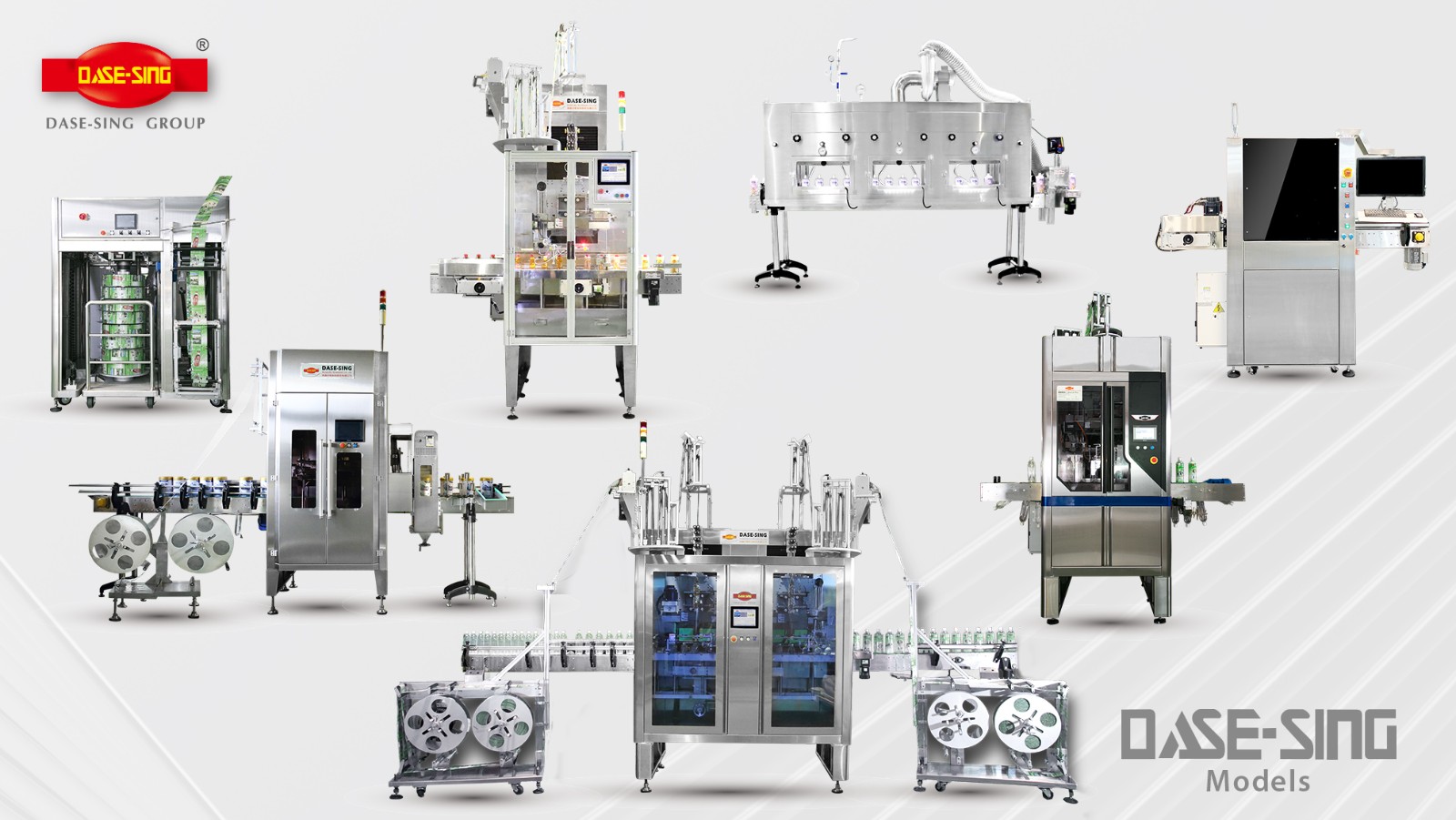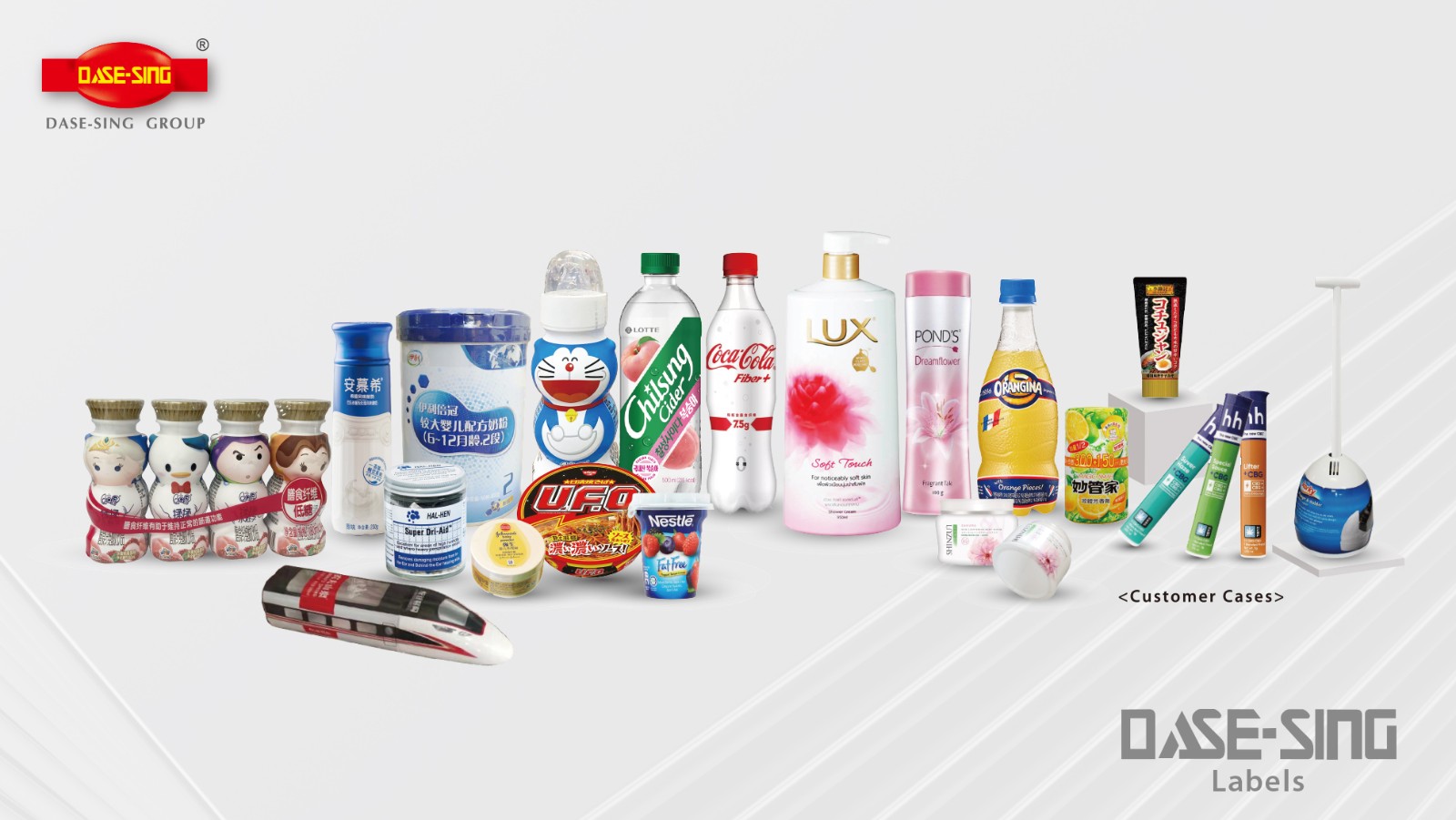The global shrink packaging market will continue to experience robust growth in the years ahead. Recovering economies and strong market demand are spurring product development. The global stretch sleeve and shrink sleeve labels segment alone is forecast to grow at 7.5% CAGR from 2021 to 2028 to hit $24.34 billion by end of the period.
Demand from the sector is stronger than ever, especially with new F&B categories constantly being launched to the market. Overall, the food packaging market worldwide is projected to reach $562.3 billion by 2030.[1] But besides the major requirements pertaining to food, shrink packaging solutions must address environmental, energy and other key issues.
Dase-Sing Packaging Technology Co., Ltd, a one-stop shrink sleeve solutions supplier, approaches product development and services with this in mind. The company prioritises label recycling, carbon emission reduction, labour, proliferation of SKU, high speed requirement, data collection for automation, energy waste reduction and ability to realise product design in its shrink packaging solutions.

Tony Huang, CEO of Dase-Sing Group and Orianna Huang, Senior Executive at Dase-Sing
Tony Huang, CEO of Dase-Sing Group, noted the company’s shrink packaging products meet manufacturers’ requirements while also addressing environmental concerns such as waste management. As one of few companies that can supply a wide range of shrink packaging solutions, Dase-Sing offers film materials to shrink sleeve machines, and handles printing. It enables manufacturers in the F&B, dairy, water, pharma, and other industries, to meet high SKU objectives with the same production time with its high-speed modular sleeving systems.
These highly flexible equipment have the capacity for up to 700 bottles per minute for a single-head machine and 1,000bpm for twin heads. The company is set to launch a modular sleeve system capable of 1,200bpm or higher.
The company’s i-Sleeve Pro sleeve labeller for example is a powerful single-head machine with a standard speed up to 600bpm (Max.)/180mm (standard length). It is customisable to higher speeds, according to Orianna Huang, Senior Executive at Dase-Sing. Besides speed, it can process different bottle types and shapes. But the techology doesn’t end there. This machine is also eco-friendly as it allows manufacturers to employ films of 25 to 30 microns, she explains.
Dase-Sing’s other machinery range includes low-speed to high-speed sleeve applicators, cup unstackers and restackers, OPP labeling machines, sleeve underlapping machines and sleeve orientators. For the film materials, it has PET, OPS, OPP, PLA, PVC and PE. The printing solutions include rotogravure and embossed tactile, with digital and flexo machines in the pipeline to support these new printing trends.

Dase-Sing is a one-stop shrink sleeve solutions supplier that offers film and equipment and printing services.
“Our machines are equipped with all the modules needed to enable operators to record the position and set up parameters for each SKU correctly and quickly. What this means for manufacturers is they can meet high-volume SKUs within the target production times,” Tony says. The company’s shrink packaging machines also allow adjustments without having to stop the steam tunnel, thereby reduce adjustment time for each SKU. The tool-less design also helps cut changeover times.
To improve quality inspection, the equipment automatically checks the label position and adhesion. It takes out defective bottles, which shorten rework time. Manufacturers looking to reduce labour costs can benefit from the company’s multi-reel unwinder, which requires changing the reel cart after 70 to 105 minutes depending on the cut lengths as opposed to ordinary unwinders where the reel needs to be changed every 10 to 15 minutes.
The machines also comply with OPC UA or PROFINET for data collection and exchange to ensure optimum production line efficiency. Data display enables operators to easily monitor equipment condition consistently.
“Our packaging machines support low to high speed to match customer requirement. These feature control systems and accessories to ensure operational efficiency,” according to Tony.

Anticipating industry call for change
But advanced technology is nothing if it cannot complement the industry’s call to save the planet from further degradation due to the use of plastics.
By 2025, it is expected that all of manufacturing particularly in the EU and the US will switch to environmentally safe materials. The situation in Asia may be a bit different although single-use plastics is slowly being reduced. In Taiwan for example, plastic straws will be banned by 2024. But with 90% of sustainable cost of recyclable materials not going down, it is hard to cope with cost. Few Asia-based companies are requesting for recyclable materials because of this, shares Orianna. But then again companies need to adjust eventually. Dase-Sing is making sure that customers can also adapt to change.
In the area of packaging which uses a lot of plastics, Dase-Sing can address environmental issues by enabling shrink label recycling and reducing energy wastage in production processes. Instead of traditional solvent seam, Dase-Sing uses wash off adhesives to facilitate easier label removal during wet recycling. The company applies washable solvent ink that is cleanly removed from the film during washing and will not cause clumping in the drying system. It prioritises use of low density shrink labels as these float on water and can be separated from PET during recycling.
“Traditional PET sinks to the bottom, making recycling more difficult but with the lower-density variant, the PET can float, making the whole process easier,” Tony adds.
Dase-Sing can provide PCR shrink film, which can reduce CO2 emission by up to 23% during film manufacture. This APR certified option features the same transparency as conventional counterparts. For its energy waste reduction objectives, Dase-Sing has developed a station to reduce moisture and steam consumption. This features low pressure and low exhaust steam.
“We are also working toward manipulating steam according to the speed of the line. To further cut energy waste, we can use different materials like low-temp shrink film as traditional shrink film may need a higher temperature to complete the shrink process,” Tony says.
Dase-Sing can customise product label design from label and bottle orientation, tear tap, underlap to tube sleeving.
“We are also strengthening our digital printing capabilities. We see digital printing as another way we can serve the packaging needs of our customers. We have worked with many global brands and have partners in many regions, and we will continue to innovate to remain relevant in this industry,” he adds.
Labels attractive and environment-friendly
The message from Dae-Sing is that manufacturers can still use high quality labels that will allow them to attract the right customers while still meet their sustainable and environmental targets. According to Orianna, companies are also willing to try new ideas for their packaging, and sees cartoon themes as one of the popular and classic designs especially for food and beverage. The thing is to always be innovative.
To ensure the quality of labels, Dase-Sing is also making improvements on the steam tunnel of machines to strengthen film adhesion to bottle. The company aims to introduce more innovations soon, she says.
For more information, visit Dase-Sing's showroom
[1] https://www.researchandmarkets.com/reports/4538899/global-food-packaging-market-size-share-and














